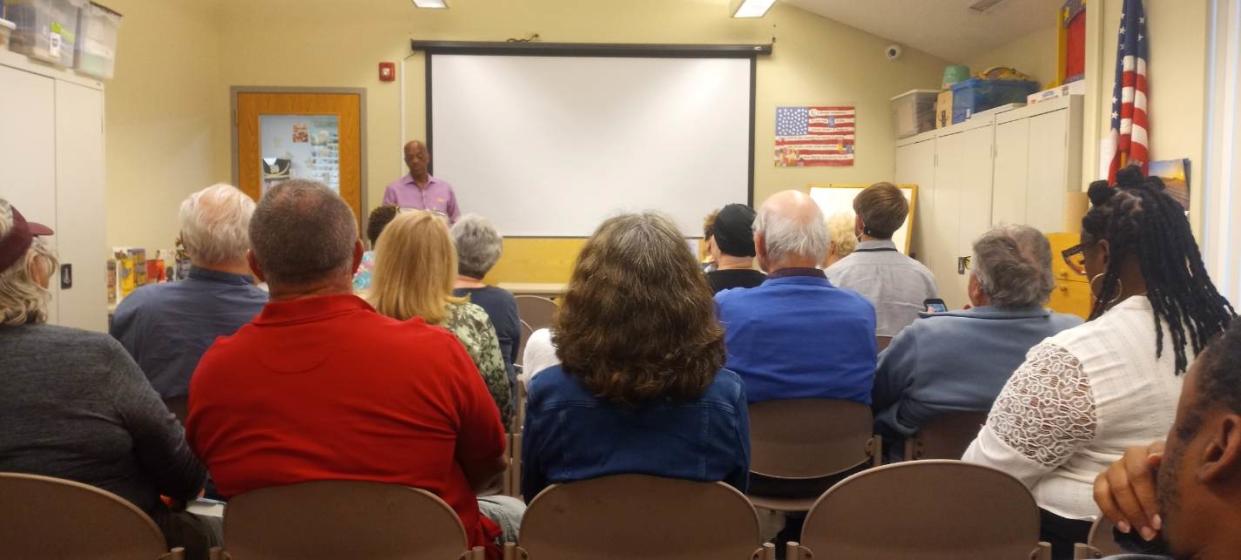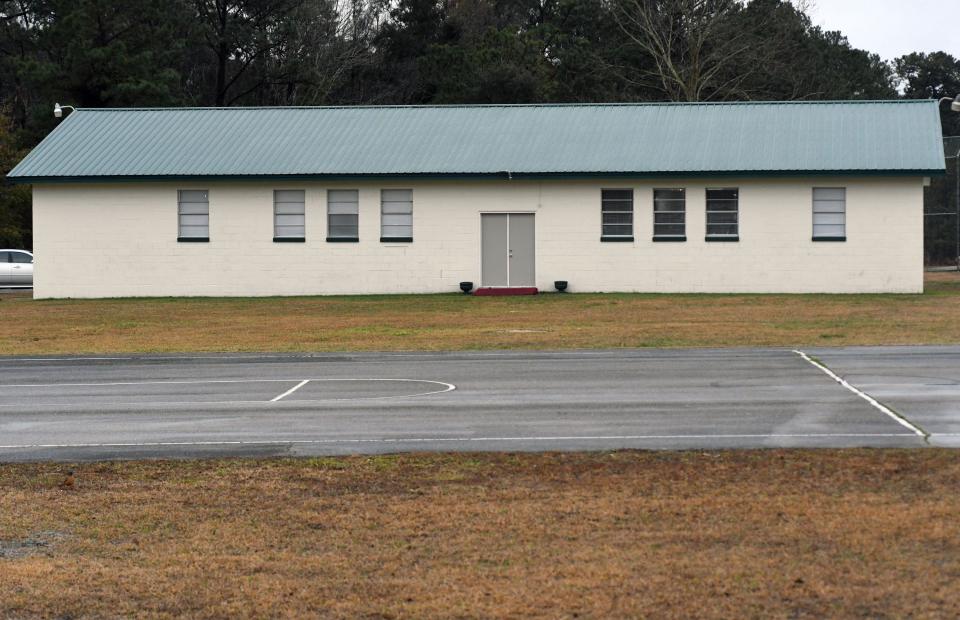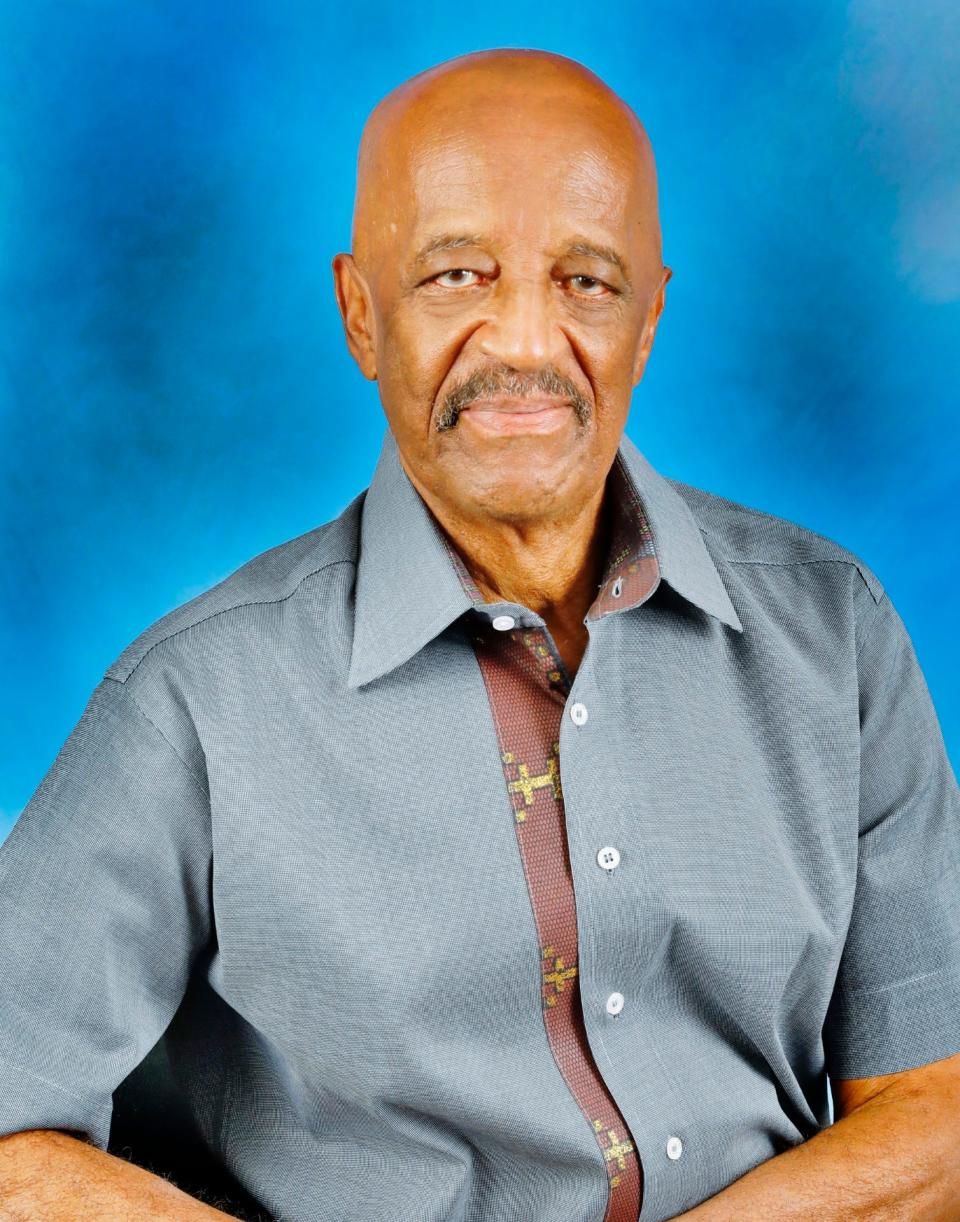Pender native sheds light on Black community's fading history with new book

Curtis Hardison has been all over the world, but his journey started in the small area of Edgecombe in eastern Pender County.
The author recently returned home to show the community's roots stretch across the Atlantic Ocean.
His book, "Griot: The Evolution of Edgecombe," traces the journey of three African captives from their homelands of Cameroon, the Central African Republic, and Angola. Hardison, 77, grew up in the farming community and described it as a Tom Sawyer type of childhood, with Blacks isolated during segregation.
"Work ethic was instilled in all of us," he said. "When you're working on a farm, you're up before the sun comes up and you're working until well after sundown. That's why so many of us excelled after leaving Edgecombe."
After being captured by European slave traders, two slaves named Janey and Tuney were sold to sugarcane plantations in Jamaica. In the early 1800s, they were sold at a dockside auction near Norfolk, Virginia by Jessie W. Batts. He took them back to the Topsail area to work on his farm.
According to Hardison's research, Sangho Shook, a house slave on the nearby Sidbury farm, was raped by her owner. She later gave birth to her daughter, Harriette, who went on to marry Henry Clay, the grandson of Batts' slaves, Janey and Tuney.
The book shows how this connection started what is now the thirteenth generation of Edgecombe residents. Along with Hardison, some of the success stories after slavery include Mattie Sharpless, an U.S. Ambassador, and Dr. Johnny Batts, a physicist who worked on NASA research projects.

As a seventh-generation member of Edgecombe, he began talking with elders and conducting research. The technology of ancestry DNA databases helped Hardison helped Hardison connect with his roots with tribes in Africa, with his paternal side being connected to Tuney and the Mbundu people of Angola.
He's currently a Health and Safety Specialist at the U.S. Holocaust Museum in Washington, D.C. Hardison graduated from Pender County Training School in 1964 and joined the U.S. Air Force, which was a game changer for him.
"Uncle Sam, bless his heart, gave me my own C-130 to maintain and I travelled and made crew chief," he said. "That exposed me to world travel, and I've been travelling ever since."
Pender County history: Pender author and filmmaker bridging gaps by documenting Black community's unknown history
More: How a Black beach on Topsail Island became part of NC's civil rights history
More from Edgecombe: As a fading Pender community fights for survival, a Hampstead leader lends her voice

He became a member of the U.S. Secret Service and was there for 20 years through five presidents, from President Richard Nixon to President George H. W. Bush.
In early May, Hardison made a presentation about the book and Edgecombe community at the Hampstead Branch Library. He was joined by Claudia Stack, a local author and documentary filmmaker.
As growth continues in nearby Surf City, he hopes Edgecombe's history doesn't get lost, along with developments such as the proposed Applewood Trace, a project consisting of hundreds of homes. The North Carolina African American Heritage Commission recently honored the Ocean City community in North Topsail Beach with a historical marker. He would like to see something for Edgecombe, too.
"It would be nice if they could refine the borders of Edgecombe and have it listed as a heritage site and give it recognition, so it won't become just another part of Surf City," he said. "Surf City will gradually suck it up."
One of the signs of progress is the recently upgraded community center. He would also like to see the old Sloop Point School turn into a museum with former students giving tours. It was known as a Rosenwald School and one of several in the area built to educate Black students made possible by the work of philanthropist Julius Rosenwald and educator Booker T. Washington. Thousands were built in the South.
“School groups and people will come from miles around to walk through the little place,” he said. “The community has a lot of potential.”
STAY CONNECTED: Keep up with the area’s latest news by signing up for the StarNews newsletter and following us on Facebook and Instagram.
Reporter Chase Jordan can be reached at cjjordan@gannett.com
This article originally appeared on Wilmington StarNews: Pender native Curtis Hardison honors county's Black history with book

